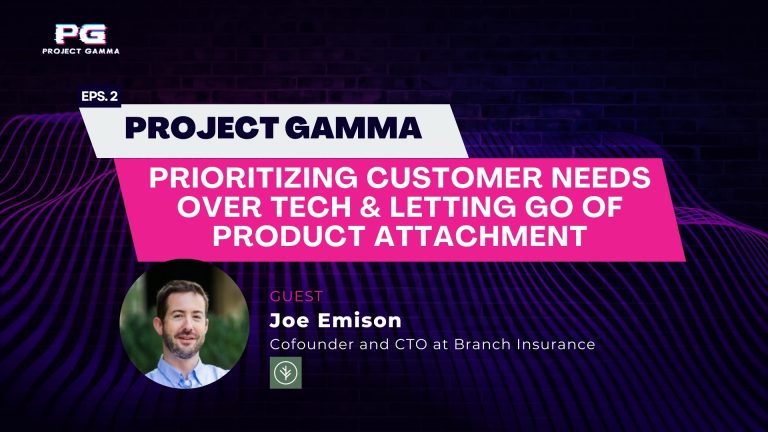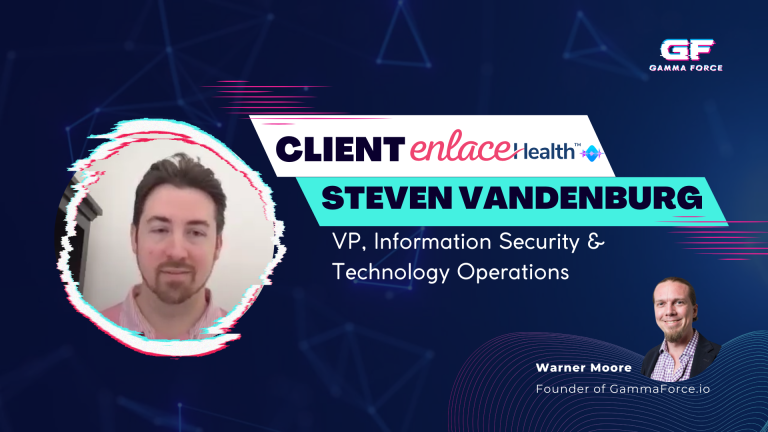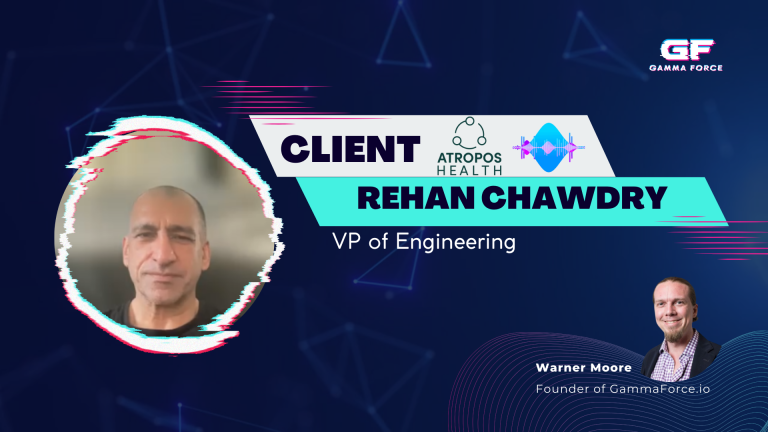Hiring Is Leadership: Why You Can’t Delegate Your Way to a High-Performing Cybersecurity Team
Hiring at the executive and senior technical level often determines whether a company scales effectively or begins to fracture beneath the surface. On paper, everything might appear to be in order: headcount targets are met, teams are structured, and roles are filled. But when hiring decisions are disconnected from leadership, problems begin to accumulate quietly. Misalignment grows, team dynamics weaken, and performance becomes inconsistent despite the appearance of progress.
This pattern is common in high-growth companies, especially in cybersecurity careers. Leaders often speak about the importance of people, culture, and team cohesion, but when it comes time to make key hiring decisions, many distance themselves from the process. Responsibility shifts to internal recruiters or external agencies, and while the mechanics of hiring continue, the intent and clarity behind those decisions begin to fade.
This perspective has become increasingly clear in conversations across the cybersecurity leadership space, and it was highlighted in a recent episode of the Project Gamma podcast, featuring Chad White, founder of Rogue Talent. A recurring theme emerged: executive hiring is not a task that can be delegated without cost. When leadership distances itself from key hiring decisions, the consequences often surface later: in value misalignment, performance inconsistencies, and cultural drift. What begins as operational efficiency can quietly evolve into organizational risk.
Hiring is a decision to own, not a process to optimize
There is a meaningful distinction between sourcing candidates and making hiring decisions. Recruiters play an important role in identifying potential candidates, coordinating logistics, and managing the flow of the process. Their work is valuable, but their responsibility ends where leadership judgment begins. They are not equipped to define the values of a team, interpret the nuances of fit, or determine whether a candidate has the presence and credibility to operate effectively in high-pressure environments.
Those decisions belong to the executive team.
In the Project Gamma podcast episode, it was noted that during peak scale, technical leaders, especially in engineering and security, may spend as much as 50–70% of their time focused on hiring. Not because the mechanics are enjoyable, but because hiring well is one of the most consequential forms of leadership. The impact of a strong or weak hire extends far beyond the role itself. It shapes delivery quality, team cohesion, operational resilience, and long-term retention.
Delegating that responsibility may seem efficient, but it introduces risk. Often, that risk is hard to measure, but eventually it shows up in performance gaps, inconsistent decision-making, and fractured culture.
By not, it’s become clear that hiring is not merely about filling roles. It is a series of decisions that determine how your team operates, how it scales, and how it performs.
If those decisions are made by people who are not accountable for the outcome, the organization carries the cost.
Reactive hiring is just damage control
The companies that consistently make strong hires understand a simple truth: the candidates they want are not sitting on job boards, refreshing LinkedIn, or waiting to be found. With very few exceptions, the best people are already in roles where they are succeeding. They are trusted by their teams, valued by their organizations, and connected to peers who know their work firsthand.
The executives who manage to attract that level of talent are not waiting for an open role to start the conversation. They are already present in the right communities, paying attention to people, and building trust well before there is anything to offer. They are not rushing to define the job after a resignation lands on their desk, they already know what kind of person they need next.
As Chad White put it during the Project Gamma podcast, “The best execs are proactive. They define hiring goals before the job ever opens.”
If your team is in a position where a senior hire needs to be made urgently and you have no pipeline, no warm candidates, and no trusted referrals, you are already in a compromised position. And the harsh truth is that you will pay for that lack of preparation, and the cost tends to show up in predictable ways:
- Time loss. Hiring cycles drag when there is no pre-qualified network to draw from.
- Lower quality. Decisions get rushed or settled, based on availability rather than fit.
- Weaker outcomes. Teams onboard leaders who never should have been hired in the first place.
A strong executive hiring strategy is about investing early, before there is a problem to solve, so that when the moment comes, the decision is clear, confident, and based on relationships that already exist.
Created luck and career momentum
Chad White shared a story during our conversation that makes this point clear. Early in his recruiting career, he supported a candidate who ultimately didn’t take a role. Seven years later, she became a CISO at a high-growth company. Her first call was to Chad. She asked him to fill two executive roles she didn’t trust anyone else to handle.
That outcome wasn’t a chance. It was what Chad calls created luck – the result of showing up consistently, building real relationships, and staying focused on long-term alignment over short-term transactions. That philosophy applies just as much to executives building teams as it does to those managing their own careers. The value of staying connected, grounded, and generous compounds over time.
Human judgment over automation
The best hiring leaders don’t rely on applicant tracking systems (ATS), keyword filters, or automated scheduling tools to make high-impact decisions, especially not for executive, engineering, or security-critical roles. Instead, they stay close to the people. They engage directly, ask hard questions, and interpret nuance.
If you’re hiring for roles that carry technical ownership, trust in crisis, or architectural influence (think Staff Engineers, Principal Architects, CISOs), your decision-making needs to be grounded in human judgment. Automation might help with coordination, but it cannot evaluate leadership presence, decision-making maturity, or cultural fit under pressure.
Especially in cybersecurity and engineering, polish is not a predictor of impact. Many of the most capable people aren’t optimizing their resumes, they’re solving hard problems inside companies that already trust them. Finding and attracting them takes intentional leadership, not just process efficiency.
The hidden cost of delegating hiring
Most engineering leaders understand the direct cost of a bad hire: salary, ramp time, missed objectives. But the deeper impact is harder to quantify. Hiring someone who lacks technical judgment, loses trust during incidents, or can’t lead a team through complexity creates friction that spreads across the entire engineering organization.
These costs do not appear in your recruiting dashboards. They surface in slower technical decisions, weaker incident response, and senior engineers quietly disengaging from leadership they no longer trust. A single misaligned hire can stall architectural progress, create confusion around ownership, and erode momentum across teams.
Hiring is a technical decision with long-term consequences. When you hire well, the benefit compounds. When you delegate it too far away from engineering leadership, the impact becomes a tax your teams carry quietly, sprint after sprint.
This work belongs to you
If you’re leading engineering or security, hiring is not adjacent to your role; it is your role. You can delegate coordination and get help sourcing. But the decisions that shape your team, your architecture, and your future cannot be handed off without consequence.
If you want to hear more of Chad White’s perspective on executive hiring strategy, human-first recruiting, and career coaching for tech leaders, you can listen to the full conversation on Project Gamma.
🎧 Episode Title: Purpose Over Paycheck: Building Teams Is the Job, Not a Task
→ Listen on Spotify
→ Listen on Apple Podcasts
→ Watch on YouTube
And if you need support building cybersecurity teams that scale, we’re here to help, without taking the wheel. Learn more about Fractional CISO services from Gamma Force.
Further reading and useful tools:
- Give and Take by Adam Grant
- The Go-Giver by Bob Burg and John David Mann
About Project Gamma: Project Gamma, where technology meets leadership. Hosted by Warner Moore, vCISO and Founder of Gamma Force, this podcast features insightful conversations with industry leaders who are shaping the future of tech.








